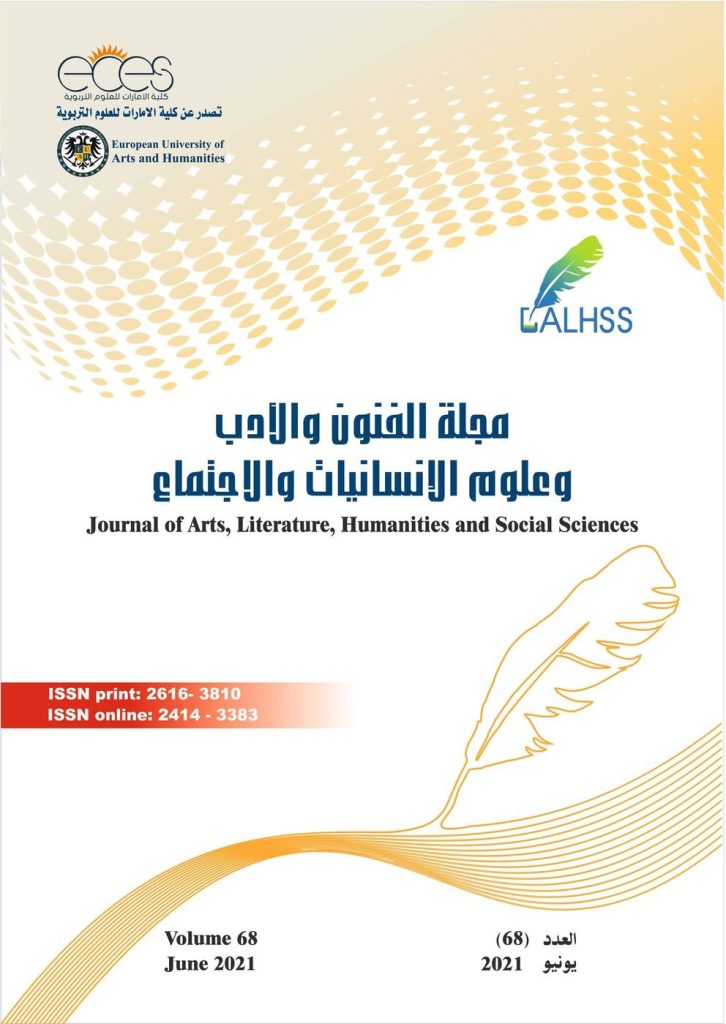
نموذج تصوري لتوحيد المعايير المنهجية في تخطيط السياسات البحثية لتوجيه الوعي الاجتماعي نحو ثقافة التنمية المستمرة والتشارکية الشعبية A Conceptual Model for Unifying Methodological Standards in Planning Research Policies to Direct Social Awareness towards a Culture of Continuous Development and Mass Participation pdf
ملخص الدراسة:
هدفت الدراسة تقديم نموذج تصوري لتوحيد المعايير المنهجية في تخطيط السياسات البحثية لتوجيه الوعي الاجتماعي نحو ثقافة التنمية المستمرة والتشارکية الشعبية، ولذلک فإن المحور المرکزي لهذه الرؤية السوسيولوجية يتجه إلى توظيف البحوث الکيفية (النظرية) الإمبريقية التي أفرزها الفکر الاقتصادي والاجتماعي في تصميم استراتيجية تنموية مخططة ترتبط بمحورين ثانويين: المحور الأول: تحديد متطلبات الحراک الشعبي وحاجات الجماهير ورغبات الشباب المتمثلة في الغالب الأعم في خلق فرص العمل والارتفاع بمستوى المعيشة وتحقق العدالة الاجتماعية والمساواة بين الطبقات، المحور الثاني: تخطيط استراتيجية سياسية تحقق المتطلبات الشعبية وفق خطة زمنية شاملة الجوانب تحدد الإمکانات المادية والأولويات في عملية "انتقائية" في مداخل متعددة المجالات (التعليم – الصحة – الإسکان –فرص العمل – التنوع الإنتاجي الزراعي – الصناعي والحرف)، وتأسيسًا على ما سبق يمکن القول أن منهج التحليل النسقي يفيد في تحديد المشکلات الأساسية في النسق التربوي على النحو التالي: حل المشکلات البنائية الوظيفية: ويمکن الوقوف على أبعادها وأسبابها وامتدادها وآثارها من خلال تحليل العلاقات الداخلية من أصغر نسق إلى أکبر نسق بطريقة تدريجية، حل المشکلات الإمبريقية: حيث إن منهج التحليل النسقي يعطي للباحث مجالًا أکبر وأشمل من تکتيکات البحوث التقليدية فمن خلال عمليات التحليل والربط للعلاقات المشار إليها تتضح "الحقيقة" فلا يرتکن الباحث إلى قضايا أو مسلمات قبلية قد تستغرقه أحکامها المسبقة وتبعده عن الحقيقة الواقعة، يحتوي منهج التحليل النسقي على إمکانات هائلة في الوقوف على المشکلات: وذلک استنادًا إلى أطر مرجعية نابعة من نظرية منهجية للنسق والفعل الاجتماعي يمکنه من صوغ العلاقات ومحتوى المشکلة المدروسة بصورة متسقة Systematic تخلو من عنصر التحيز أو التعسف في معالجة مشکلة ما، يسير منهج التحليل النسقي في البحث التجريبي سيرًا متصلًا من العنصر التصوري إلى العنصر التجريبي.
The current study aimed to develop a conceptual model for unifying the methodological standards in planning research policies to direct social awareness towards a culture of continuous development and mass participation. Therefore, the central dimension of this sociological vision is directed to employ the qualitative (theoretical) research produced by economic and social thought in designing a planned development strategy linked to two sub-dimensions, namely, the first dimension: defining the requirements of the mass movement, the needs of the mass, and the desires of the youth, which are mostly represented in creating job opportunities, raising the standards of living, and achieving social justice and equality between the classes. The second dimension tackled planning a political strategy that meets the popular requirements according to a comprehensive aspects plan that defines the physical capabilities and priorities in a "selective" process in multiple fields (education - health - housing - jobs - agricultural production diversity - industry and crafts). With this in mind, the systematic analysis method is useful in identifying the basic problems in the educational system as follows: solving functional structural problems, solving the imperial problems. The methodological analysis gives the researcher a greater and more comprehensive field than the traditional research methods, through the processes of analyzing and linking to the aforementioned relationships. The methodological analysis has a huge potentials in identifying problems based on reference frameworks stemming from a systematic theory of coordination and social action that enables formulating relationships and the content of a problem in a systematic manner, devoid of an element of bias or arbitrariness in dealing with problems. The methodological analysis in the experimental research work systematically from the conceptual dimension to the experimental one.
خصائص الدراسة
-
المؤلف
الکاشف ، علي عمر فؤاد
-
سنة النشر
13 - 01 - 2018
-
الناشر:
جامعة الأزهر، کلية التربية
-
المجلد/العدد:
المجلد: 37 العدد 178ج2
-
المصدر:
التربية (الأزهر): مجلة علمية محکمة للبحوث التربوية والنفسية والاجتماعية)
-
الصفحات:
533 - 552
-
نوع المحتوى:
بحث علمي
-
اللغة:
العربية
-
ISSN:
1110-323X
-
محكمة:
نعم
-
الدولة:
مصر
-
النص:
دراسة كاملة
-
نوع الملف:
pdf


